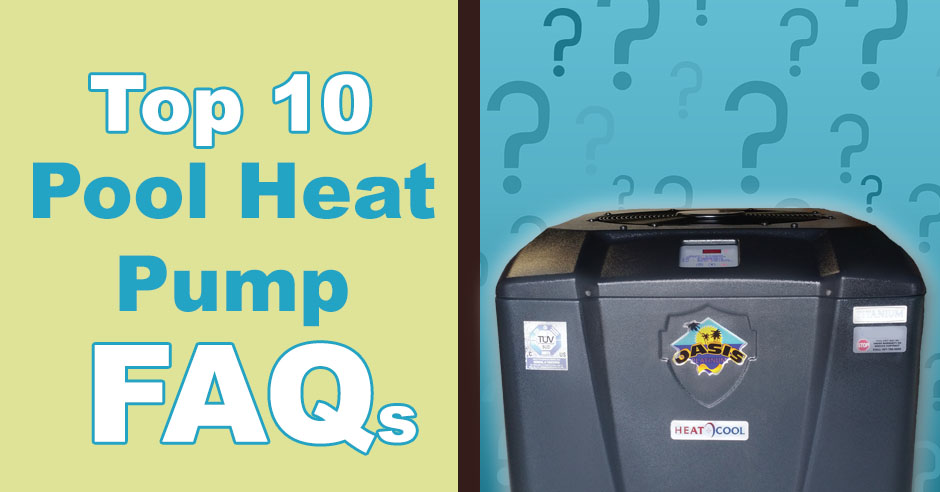Have a few questions about your pool heat pump? Thinking of getting one?
Odds are you’ll find the answers you need in this post
Whether you own a heat pump or are thinking about getting one, you’ve probably had a few questions at one point or another. “How do they work”, “how long do they last”, and so on.
That said, there are a few questions in particular that seem to pop up often. And those are the questions we’re focusing on.
We’re shedding light on the most common pool heat pump FAQS, and sprinkling in some pool heat pump troubleshooting tips while we’re at it.
So if you have a question about your pool heat pump, this post might just have the answer. If not, you could always ask a pool heat pump specialist.
Top 10 Pool Heat Pump FAQs & Answers
1.) How does a pool heat pump work



A heat pump uses electricity to harvest natural heat. It all starts when the heat pump spins its fan and pulls in warm air. The warm air passes over an evaporator coil and reacts with a refrigerant inside the tubes. This reaction creates a warm gas which gets sent to a compressor. The compressor then compresses the warm gas into a hot gas.
In the last steps of the process, the hot gas travels to the heat exchanger where it heats up an inner titanium tube. As water travels through the outer PVC tubing of the heat exchanger, it’s warmed by the inner heated titanium tubing. From here, the heated water gets pumped into the pool, as more water gets pumped into the heater.
And at that point, the heating process repeats until the pool reaches the target temperature specified on the heat pump.
[Learn more about how heat pumps work]
2.) What size heat pump do I need?
Of all the pool heat pump FAQs, this could be the most important in terms of making a purchase. The size of the heat pump you need for your pool largely depends on two major factors: your location, and the size of your pool.
Usually, the bigger your pool, the bigger your pool heater should be. And depending on where you live, a bigger, or smaller heater may be ideal for maintaining your desired temperature.
You can learn how to size your heat pump in this post, or use our heat pump sizing calculator.
3.) How much does it cost to heat a pool with a heat pump?
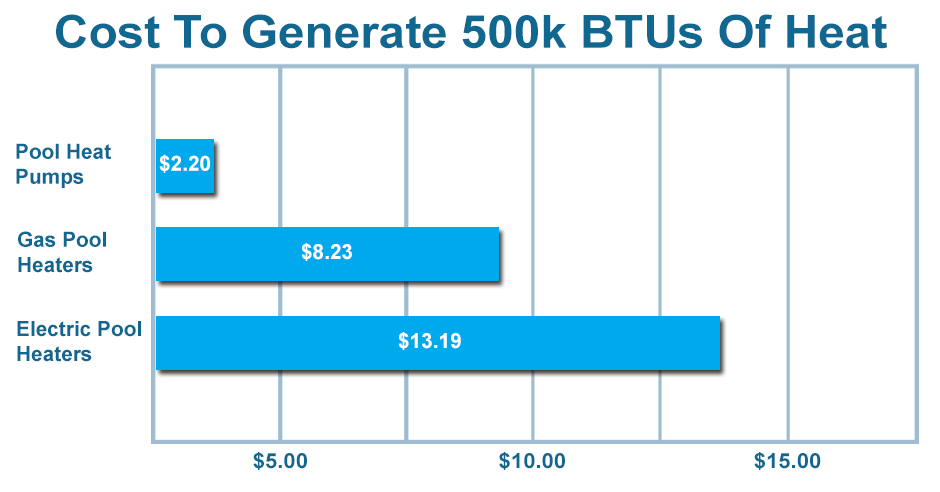


The cost of heating a pool with a heat pump ranges from $50-150 per month, the lowest of nearly all pool heating options. And compared to gas and electric resistance at $300+, it’s easy to see why energy efficiency matters.
But, no matter what kind of pool heater you have, using a solar cover can help improve your heating efficiency drastically.
4.) How long do pool heat pumps last?
Even without a lick of maintenance, a pool heat pump easily lasts 10 to 20 years. But, with good maintenance, a pool heat pump can literally last a lifetime.
[Learn 7 ways to extend your pool heat pump’s lifespan]
Most problems that affect aged heat pumps can usually be avoided altogether with regular service and maintenance. Think of them like cars.
If you take good care of your car and service it on the regular, it treats you well. But neglect your car and forget your oil changes, and you’re in for loads of costly repairs down the road.
5.) How fast can a heat pump heat my pool? (How long does it take to heat a swimming pool?)
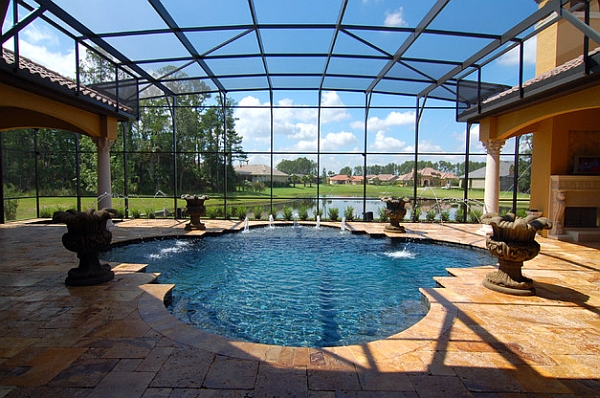


A heat pump can heat a pool by 20 degrees Fahrenheit in 24-72 hours. The precise heating rate depends on the size of the pool, outdoor temperature, and whether or not a solar cover is used.
6.) What’s the coldest temperature a heat pump will function at?
The coldest temperature most heat pumps will function at is 50 degrees Fahrenheit. But heat pumps with certified low-temperature performance, like the Oasis Platinum Ultra Quiet, can function all the way down to the 30s. This feature can be especially helpful for pool owners up north looking to extend their swim season.
Keep in mind that although a heat pump will still heat down to its cutoff temperature, heating effectiveness is often affected.
Pool Heat Pump FAQs (Troubleshooting)
7.) Why is my pool heat pump running but not heating?
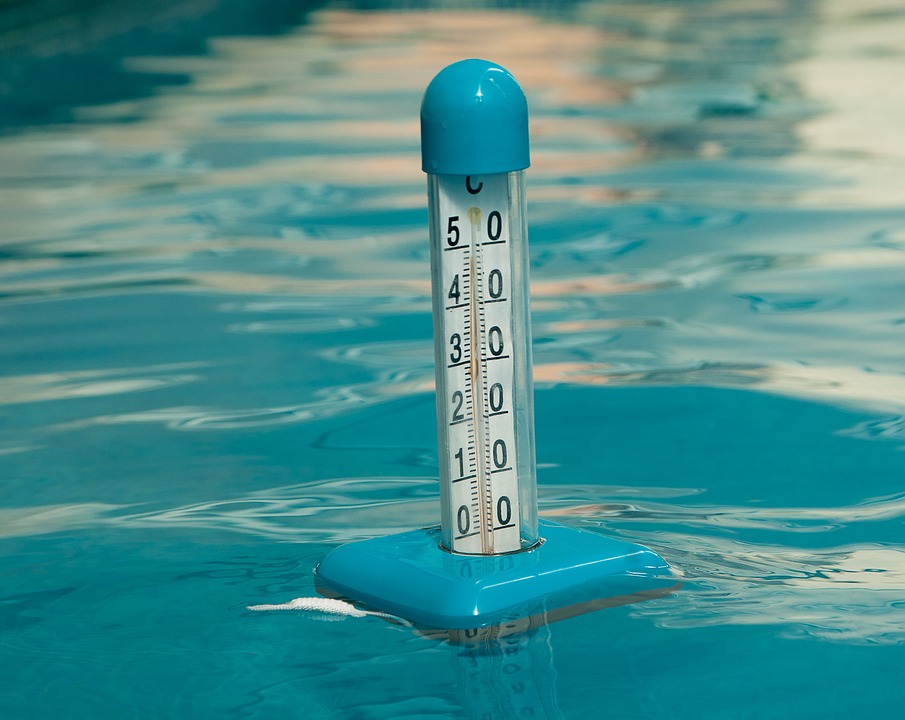


A pool heat pump that runs but doesn’t heat can mean a few things. So, here are a few answers to go with your pool heat pump FAQs.
Here’s what to check for:
- Check the air temperature. A pool heat pump requires warm air to operate most effectively. But in cooler temperatures, the heat pump runs longer to compensate.
- Make sure your pool pump is sending enough water your heater. A heat pump needs a steady supply of water to properly handle heat transfer and production.
- Clear any obstructions or debris from the vents. This ensures optimal air flow, which is essential to an air-source heat pump’s heating process.
8.) Why does my pool heater keep shutting off?
When a heat pump keeps shutting off, it usually means one of two things: an electrical, or water pressure issue
If your heat pump is displaying any error codes related to “FLO” or ” LO/HI”, then the issue is related to water pressure. Most of the time, fixing these problems involve troubleshooting your pool pump or a part in the heater. Learn more here
Now, if your pump is running and not displaying error codes, then power it down and inspect the electrical setup.
First, walk over to the heat pump and check the electric terminals for any corrosion or damage. From there, check the wiring leading from the pump to the breaker for any wear. Last, check the breaker and confirm that it’s sending adequate power to the heat pump.
Learn more about troubleshooting your heat pump.
9.) Why is my heat pump leaking?
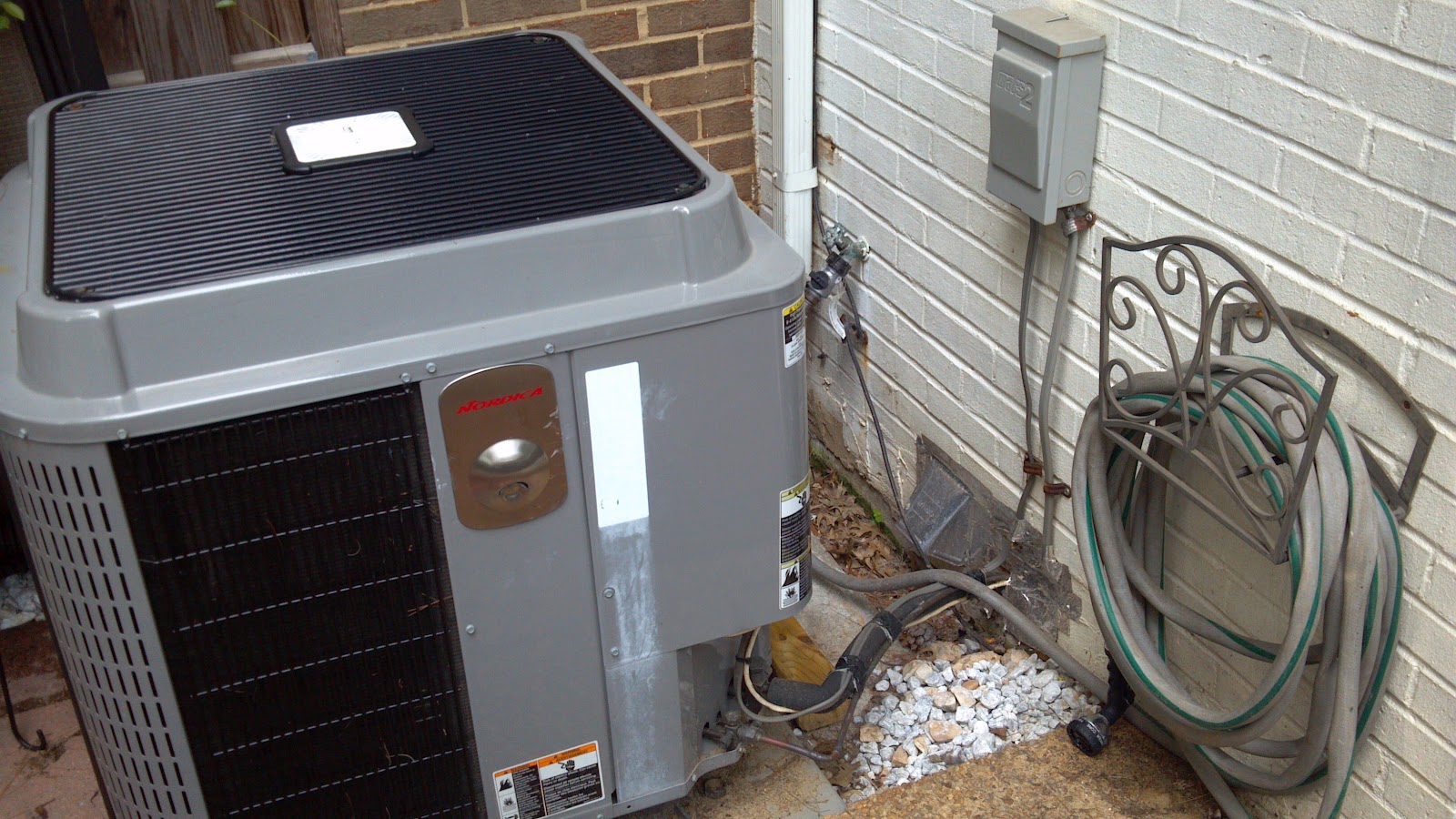


Among the full collection of pool heat pump FAQs, this one may be the most common, both online and in the real world.
There’s a good chance that what you’re seeing is just natural condensation. Every heat pump will “sweat” and produce a small puddle every now and then. This usually happens when the heat pump is doing a defrost.
That said, it isn’t impossible for a heat pump to spring a leak. And luckily there are plenty of ways to test where the water is coming from, which we explain in this post.
10.) Why does my heat pump say FLO?
In most heat pumps, the “FLO” error code indicates a water pressure issue. It can mean that water flow is being restricted, or that none is being detected at all.
Sometimes, water flow issues can be caused by a blockage in the pool system, originating anywhere from the filter to the pump and skimmer baskets.
So the best course of action is to start small: clear out the skimmer, then the pump basket. From there, check your filter to make sure it’s clean and allowing water flow at the correct pressure.
If everything checks out, and the pump is definitely receiving enough water, then the issue is likely a defective water pressure switch. Luckily this part is fairly inexpensive and simple to replace.
[Find pool heat pump parts here]
*BONUS: Pool Heat Pump FAQs
What’s the difference between heat pumps and gas pool heaters?
Pool heat pumps use small amounts of electricity to harvest and magnify natural heat. Gas pool heaters burn gas or propane to produce heat. Ten guesses which one is more affordable per month.
Learn more about these two heaters in this post: Heat Pumps vs Gas Pool Heaters
What does C.O.P mean?
C.O.P stands for Coefficient of Performance, which is a number used to rank a pool heat pump’s energy efficiency. Specifically, it represents the amount of energy a machine produces per unit of energy that it consumes.
For instance, a heat pump like the Oasis Platinum Ultra Quiet features a COP of 6.5. This means that for every unit of energy the heater consumes, it produces 6.5 units worth of heat. High energy efficiency like that has a major impact on lowering your swimming pool’s energy bill.
Closing Thoughts
We this post offered some helpful answers for your questions on pool heat pumps. Naturally, we couldn’t cover every question ever asked about pool heat pumps. But, that’s because we’ve answered a lot of them in the past already.
If you’re still trying to learn more about heat pumps, start here:
- Pool Heat Pumps 101
- 9 DIY Pool Heater Repair Tips & Troubleshooting Hacks
- 5 Benefits of Using a Pool Heat Pump
- Do You Need a Pool Heater In Florida?

